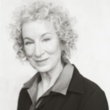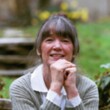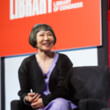The Poisonwood Bible
(Libby/OverDrive eBook, Kindle)
Available Platforms
Description
'A powerful new epic . . . [Kingsolver] has with infinitely steady hands worked the prickly threads of religion, politics, race, sin and redemption into a thing of terrible beauty.' 'Los Angeles Times Book Review
The Poisonwood Bible is a story told by the wife and four daughters of Nathan Price, a fierce, evangelical Baptist who takes his family and mission to the Belgian Congo in 1959. They carry with them everything they believe they will need from home, but soon find that all of it'from garden seeds to Scripture'is calamitously transformed on African soil. What follows is a suspenseful epic of one family's tragic undoing and remarkable reconstruction over the course of three decades in postcolonial Africa.
The novel is set against one of the most dramatic political chronicles of the twentieth century: the Congo's fight for independence from Belgium, the murder of its first elected prime minister, the CIA coup to install his replacement, and the insidious progress of a world economic order that robs the fledgling African nation of its autonomy. Taking its place alongside the classic works of postcolonial literature, this ambitious novel establishes Kingsolver as one of the most thoughtful and daring of modern writers.
Similar Titles From NoveList
Similar Authors From NoveList
Published Reviews
Publisher's Weekly Review
In this risky but resoundingly successful novel, Kingsolver leaves the Southwest, the setting of most of her work (The Bean Trees; Animal Dreams) and follows an evangelical Baptist minister's family to the Congo in the late 1950s, entwining their fate with that of the country during three turbulent decades. Nathan Price's determination to convert the natives of the Congo to Christianity is, we gradually discover, both foolhardy and dangerous, unsanctioned by the church administration and doomed from the start by Nathan's self-righteousness. Fanatic and sanctimonious, Nathan is a domestic monster, too, a physically and emotionally abusive, misogynistic husband and father. He refuses to understand how his obsession with river baptism affronts the traditions of the villagers of Kalinga, and his stubborn concept of religious rectitude brings misery and destruction to all. Cleverly, Kingsolver never brings us inside Nathan's head but instead unfolds the tragic story of the Price family through the alternating points of view of Orleanna Price and her four daughters. Cast with her young children into primitive conditions but trained to be obedient to her husband, Orleanna is powerless to mitigate their situation. Meanwhile, each of the four Price daughters reveals herself through first-person narration, and their rich and clearly differentiated self-portraits are small triumphs. Rachel, the eldest, is a self-absorbed teenager who will never outgrow her selfish view of the world or her tendency to commit hilarious malapropisms. Twins Leah and Adah are gifted intellectually but are physically and emotionally separated by Adah's birth injury, which has rendered her hemiplagic. Leah adores her father; Adah, who does not speak, is a shrewd observer of his monumental ego. The musings of five- year-old Ruth May reflect a child's humorous misunderstanding of the exotic world to which she has been transported. By revealing the story through the female victims of Reverend Price's hubris, Kingsolver also charts their maturation as they confront or evade moral and existential issues and, at great cost, accrue wisdom in the crucible of an alien land. It is through their eyes that we come to experience the life of the villagers in an isolated community and the particular ways in which American and African cultures collide. As the girls become acquainted with the villagers, especially the young teacher Anatole, they begin to understand the political situation in the Congo: the brutality of Belgian rule, the nascent nationalism briefly fulfilled in the election of the short-lived Patrice Lumumba government, and the secret involvement of the Eisenhower administration in Lumumba's assassination and the installation of the villainous dictator Mobutu. In the end, Kingsolver delivers a compelling family saga, a sobering picture of the horrors of fanatic fundamentalism and an insightful view of an exploited country crushed by the heel of colonialism and then ruthlessly manipulated by a bastion of democracy. The book is also a marvelous mix of trenchant character portrayal, unflagging narrative thrust and authoritative background detail. The disastrous outcome of the forceful imposition of Christian theology on indigenous natural faith gives the novel its pervasive irony; but humor is pervasive, too, artfully integrated into the children's misapprehensions of their world; and suspense rises inexorably as the Price family's peril and that of the newly independent country of Zaire intersect. Kingsolver moves into new moral terrain in this powerful, convincing and emotionally resonant novel. Agent, Frances Goldin; BOMC selection; major ad/promo; author tour. (c) Copyright PWxyz, LLC. All rights reserved
Library Journal Review
An enduringly popular story of one family's existence in postcolonial Africa, often found on "best of the best" lists of audiobooks. Narrated with an anthropological tone by Dean Robertson. (c) Copyright 2014. Library Journals LLC, a wholly owned subsidiary of Media Source, Inc. No redistribution permitted.
Kirkus Book Review
The first novel in five years from the ever-popular Kingsolver (Pigs in Heaven, 1993, etc.) is a large-scale saga of an American family's enlightening and disillusioning African adventure. It begins with a stunningly written backward look: Orleanna Price's embittered memory of the uncompromising zeal that impelled her husband, Baptist missionary Nathan Price, to take her and their four daughters to the (then) Belgian Congo in 1959, and remain there despite dangerous evidence of the country's instability under Patrice Lumumba's ill-starred independence movement, Belgian and American interference and condescension, and Joseph Mobutu's murderous military dictatorship. The bulk of the story, which is set in the superbly realized native village of Kilanga, is narrated in turn by the four Price girls: Leah, the ``smart'' twin, whose worshipful respect for her father will undergo a rigorous trial by fire; her retarded'' counterpart Adah, disabled and mute (though in the depths of her mind articulate and playfully intelligent); eldest sister Rachel, a self-important whiner given to hilarious malapropisms (``feminine tuition''; ``I prefer to remain anomalous''); and youngest sister Ruth May, whose childish fantasies of union with the surrounding, smothering landscape are cruelly fulfilled. Kingsolver skillfully orchestrates her characters varied responses to Africa into a consistently absorbing narrative that reaches climax after climaxand that, even after you're sure it must be nearing its end, continues for a wrenching hundred pages or more, spelling out in unforgettable dramatic and lyric terms the fates of the surviving Prices. Little recent fiction has so successfully fused the personal with the political. Better even than Robert Stone in his otherwise brilliant Damascus Gate, Kingsolver convinces us that her characters are, first and foremost, breathing, fallible human beings and only secondarily conduits for her books vigorously expressed and argued social and political ideas. A triumph. (Author tour)
Library Journal Reviews
Fiery evangelist Nathan Price takes his wife and four daughters to the Belgian Congo in 1959, where they find that they are more transformed than transforming. Kingsolver's first since Pigs in Heaven. Copyright 1998 Library Journal Reviews
Library Journal Reviews
It's been five years since Kingsolver's last novel (Pigs in Heaven, LJ 6/15/93), and she has used her time well. This intense family drama is set in an Africa on the verge of independence and upheaval. In 1959, evangelical preacher Nathan Price moves his wife and four daughters from Georgia to a village in the Belgian Congo, later Zaire. Their dysfunction and cultural arrogance proves disastrous as the family is nearly destroyed by war, Nathan's tyranny, and Africa itself. Told in the voices of the mother and daughters, the novel spans 30 years as the women seek to understand each other and the continent that tore them apart. Kingsolver has a keen understanding of the inevitable, often violent clashes between white and indigenous cultures, yet she lets the women tell their own stories without being judgmental. An excellent novel that was worth the wait and will win the author new fans. [Previewed in Prepub Alert, LJ 7/98.] Ellen Flexman, Indianapolis-Marion Cty. P.L. Copyright 1998 Library Journal Reviews
Publishers Weekly Reviews
In this risky but resoundingly successful novel, Kingsolver leaves the Southwest, the setting of most of her work (The Bean Trees; Animal Dreams) and follows an evangelical Baptist minister's family to the Congo in the late 1950s, entwining their fate with that of the country during three turbulent decades. Nathan Price's determination to convert the natives of the Congo to Christianity is, we gradually discover, both foolhardy and dangerous, unsanctioned by the church administration and doomed from the start by Nathan's self-righteousness. Fanatic and sanctimonious, Nathan is a domestic monster, too, a physically and emotionally abusive, misogynistic husband and father. He refuses to understand how his obsession with river baptism affronts the traditions of the villagers of Kalinga, and his stubborn concept of religious rectitude brings misery and destruction to all. Cleverly, Kingsolver never brings us inside Nathan's head but instead unfolds the tragic story of the Price family through the alternating points of view of Orleanna Price and her four daughters. Cast with her young children into primitive conditions but trained to be obedient to her husband, Orleanna is powerless to mitigate their situation. Meanwhile, each of the four Price daughters reveals herself through first-person narration, and their rich and clearly differentiated self-portraits are small triumphs. Rachel, the eldest, is a self-absorbed teenager who will never outgrow her selfish view of the world or her tendency to commit hilarious malapropisms. Twins Leah and Adah are gifted intellectually but are physically and emotionally separated by Adah's birth injury, which has rendered her hemiplagic. Leah adores her father; Adah, who does not speak, is a shrewd observer of his monumental ego. The musings of five- year-old Ruth May reflect a child's humorous misunderstanding of the exotic world to which she has been transported. By revealing the story through the female victims of Reverend Price's hubris, Kingsolver also charts their maturation as they confront or evade moral and existential issues and, at great cost, accrue wisdom in the crucible of an alien land. It is through their eyes that we come to experience the life of the villagers in an isolated community and the particular ways in which American and African cultures collide. As the girls become acquainted with the villagers, especially the young teacher Anatole, they begin to understand the political situation in the Congo: the brutality of Belgian rule, the nascent nationalism briefly fulfilled in the election of the short-lived Patrice Lumumba government, and the secret involvement of the Eisenhower administration in Lumumba's assassination and the installation of the villainous dictator Mobutu. In the end, Kingsolver delivers a compelling family saga, a sobering picture of the horrors of fanatic fundamentalism and an insightful view of an exploited country crushed by the heel of colonialism and then ruthlessly manipulated by a bastion of democracy. The book is also a marvelous mix of trenchant character portrayal, unflagging narrative thrust and authoritative background detail. The disastrous outcome of the forceful imposition of Christian theology on indigenous natural faith gives the novel its pervasive irony; but humor is pervasive, too, artfully integrated into the children's misapprehensions of their world; and suspense rises inexorably as the Price family's peril and that of the newly independent country of Zaire intersect. Kingsolver moves into new moral terrain in this powerful, convincing and emotionally resonant novel. Agent, Frances Goldin; BOMC selection; major ad/promo; author tour. (Nov.) Copyright 1998 Publishers Weekly Reviews
Reviews from GoodReads
Citations
Kingsolver, B. (2009). The Poisonwood Bible . HarperCollins.
Chicago / Turabian - Author Date Citation, 17th Edition (style guide)Kingsolver, Barbara. 2009. The Poisonwood Bible. HarperCollins.
Chicago / Turabian - Humanities (Notes and Bibliography) Citation, 17th Edition (style guide)Kingsolver, Barbara. The Poisonwood Bible HarperCollins, 2009.
Harvard Citation (style guide)Kingsolver, B. (2009). The poisonwood bible. HarperCollins.
MLA Citation, 9th Edition (style guide)Kingsolver, Barbara. The Poisonwood Bible HarperCollins, 2009.
Copy Details
| Collection | Owned | Available | Number of Holds |
|---|---|---|---|
| Libby | 10 | 0 | 22 |




































